#Aristocracy
Text

Portrait of Helen Vincent, Viscountess D’Abernon, 1904
John Singer Sargent
#John Singer Sargent#art#painting#art history#fashion#portrait#american art#1900s#edwardian#fashion history#early 20th century#aristocracy
922 notes
·
View notes
Text
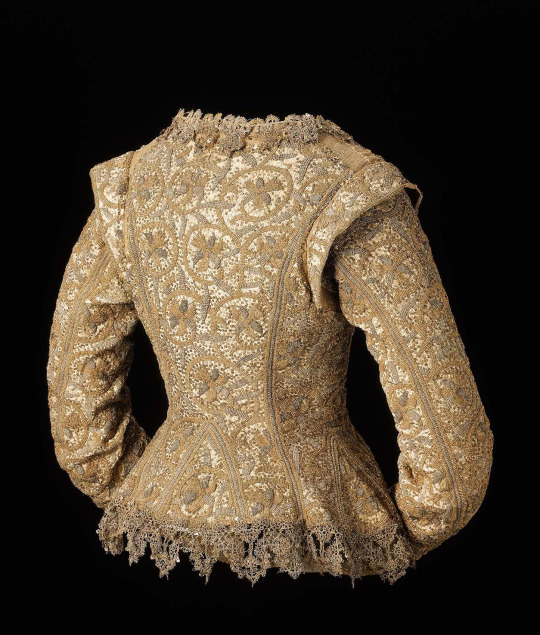
Woman's jacket, English. About 1610–15, with later alterations. Linen plain weave, embroidered with metallic threads and spangles; metallic bobbin lace. The Elizabeth Day McCormick Collection.
396 notes
·
View notes
Text



200 notes
·
View notes
Text
Yan! Villain: *stalking darling during a party, dressed as a server*
Aristocrat! Darling: *smiling and chatting, surrounded by people*
Yan! Villain: how cute, enjoy this peace while it lasts, little apple...
#yancore#yandere#yandere headcanons#yandere scenarios#headcanon#yandere x darling#yandere x reader#yandere x you#fantasy#villain x reader#aristocracy
160 notes
·
View notes
Text

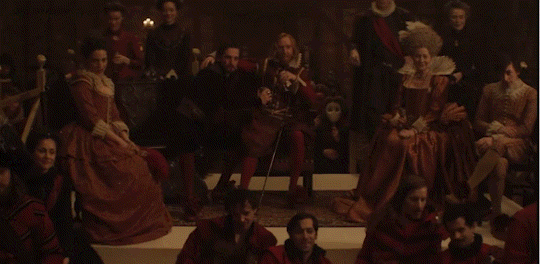




Nicholas Galitzine as the 1st Duke of Buckingham in Mary and George (2024).
#nicholas galitzine#mary and george#gay history#history#british history#red white and royal blue#gif#my gif#royalty#royal#aristocracy#british aristocracy#duke of buckingham#oceancentury#mary & george#tv and film
334 notes
·
View notes
Text

Alexandre-Jean Dubois-Drahonet (1791-1834)
"Portrait of Achille Deban de Laborde" (1817)
Oil on canvas
Located in the Clark Art Institute, Williamstown, Massachusetts, United States
Painted during the Bourbon restoration, this portrait depicts the son of a fallen Napoleonic hero during a time of anti-imperialism in France. Eight-year-old Achille wears a miniature version of the embroidered Hussar uniform his father, Baron Jean-Baptiste Deban de Laborde, would have worn. His father’s military awards, notably the ceremonial sword and Légion d’honneur hanging in the upper left, surround the young boy. Achille would ultimately rise to the rank of colonel in the French cavalry.
#paintings#art#artwork#genre painting#male portrait#alexandre jean dubois drahonet#oil on canvas#fine art#clark art institute#museum#art gallery#french artist#portrait of a boy#history#aristocracy#serving looks#he ate#clothing#clothes#red#black#boots#swords#weapons#weaponry#1810s#early 1800s#early 19th century
97 notes
·
View notes
Text
Saltburn: The Reign of British Bourgeois (Meta)
I recently had an interesting conversation with a close friend of mine who said, "I don't think Saltburn is really about class." She said she thought it was mainly about obsession, in the most individualist and interpersonal way possible. I naturally disagreed, and we argued about it for an hour. But I think the reason she didn't think it was really about class was because the film had a categorically anti-Marxist conclusion. That is, a very British conclusion. In many ways, Saltburn is a Thatcherite's wet dream. Let's discuss.
Saltburn isn’t an “Eat The Rich” narrative. It’s an “Absorb The Rich” narrative. I disagree that Saltburn is merely about an individual’s obsession with a particular guy or family. Saltburn is about the bourgeoisie’s obsession with the old English aristocracy.
Let’s establish the establishment: the modern English aristocracy whose family seats litter the shires. Saltburn aims to satirize the English Country House family drama, and then some. This is made evident when Felix informs Ollie that, whoa, the Evelyn Waugh himself based Brideshead Revisited and other works on Saltburn, on Felix’s family. The film, in my opinion, was kinda ballsy to go there and to do it so bluntly. So yeah, Saltburn wants to poke fun at the long-established English tradition of aristocratic family dramas such as Downton Abbey, Brideshead Revisited, Bridgerton, Poldark, Rebecca, etc. It’s no coincidence that the movie begins with an egregiously stereotypical sketch of Ollie struggling to fit in at Oxford, à la Charles Ryder. Felix Catton is Sebastian Flyte, and then some. And Ollie is obsessed with him, because look at him. Except… I believe Ollie’s obsession with Felix is less of an interpersonal homoerotic deranged clusterfuck than it is the bourgeois boy’s perennial fixation with the unreachable closed-door English aristocracy, the national pinnacle of inherited class and status in a nation founded on inherited class and status.
Saltburn, butler and all, is a perfect symbol of English aristocratic privilege (seconded by none other than Oxford, but the film didn’t care to explore the hierarchies present in British education and instead chose to focus on family in lieu of academia). Saltburn is grand, medieval, kitchy, isolated in the middle of whereverthefuckshire. One would think that Ollie was intending to infiltrate Saltburn to possess Felix, but I rather think he was intending to infiltrate Felix in order to possess Saltburn. To possess Saltburn is to possess the rank and place of the Catton’s in the world, to be the world. And Ollie doesn’t want to destroy the Cattons nearly as much as he wants to embody them.
I suppose Ollie’s need to absorb, to consume, to possess and to incarnate is obvious through his actions—drinking Felix’s semen in the bathtub, the period blood bit, the grave-fucking debacle. He worms his way through every aspect of the family members’ lives with the intent to become them, to suck them dry (see: “I’m a vampire”, how gothic). By the end when the Cattons are all dead, Ollie celebrates the privilege he has grasped, and in turn, the film applauds his feat rather than condemns him. Saltburn is a film that congratulates Ollie’s usurping of wealth and privilege, rooting for him from beginning to end. And the film never tries to interrogate itself and ask why Ollie is our hero. Ollie, who does not want to break the wheel as much as he wants to be in the room where it happens, even if that means destroying everyone else in his path. Ollie’s obsession, generally speaking, arises from the desire for status and rank rather than an inoccuous maniacal insanity. This is symbolized by his possession and control of Saltburn. If Saltburn were a gothic ghost story, then Ollie is our specter. And Saltburn is definitely rooting for the specter, full stop.
Britain is a nation of ranks and hierarchies, naturally averse to watering down pristine intergenerational blue blood with filthy postmodern capitalist dollars. “Stay in your place”, that is the Tory way. Even in a “modern, democratic” nation nonetheless governed by an antiquated Tory hegemony and quite opposed to both radicalism and revolution. Ollie, however, wants to be in the room where it happens in a world where only those who are born in that room ever get to enter it. It is why he faces this overwhelming yearning for Felix’s world and Saltburn’s beauty – it is, by default, off-limits to him no matter how hard he tries to reach it. In my opinion, Ollie’s fascination with Saltburn isn’t due to a homoerotic fixation on Felix. It’s due to an outsider’s bourgeois fixation on the romantic world of inherited English rank, status, and wealth. The romance of Saltburn, our need to romanticize the privileged upper class, is evident in the stunning cinematography and costuming. Farleigh is the first person in the family to notice Ollie’s insecurities and see it for what it is – he’s begging to be let in. Farleigh likewise takes the opportunity to constantly, antagonistically remind Ollie that Saltburn isn’t his world, that he will never fit in and will never be accepted as one of them: the tux will never perfectly fit. It is the tragedy of the almost-theres. So Ollie decides to just get rid of everyone in his way and prance about naked since the tux refuses to bloody fit.
It’s just so English, culturally speaking. To claw your way to the top to sit with the big boys rather than to criticize the system that bred the arduous, back-breaking, fatal climb in the first place. This is Tory meritocracy, founded on decades of policies to reduce taxes on properties such as Saltburn in Britain, to keep old peers in the Lords. Felix Catton is Sebastian Flyte is Margaret Thatcher. Thatcher who, despite brandishing her “common” background as a selling point during her political career, painstakingly perfected the Received Pronunciation of her Eton parliamentary peers and successfully died with the coveted title of Baroness added to her name. Thatcher, an Oxford scholarship kid like Ollie, who wormed her way into a title and country house and was yet forever plagued by her average, middle-class upbringing.
Ollie is obsessed with much more than a mere man. If Saltburn were a Marxist class story, truly dedicated to class critcism or subverting the English Country House drama, Ollie would have burned the whole damn place down. But Saltburn is rather a Tory class story about the insane lengths the British bouregoisie, obsessed with ascending class hierarchies and disillusioned by the lies of meritocracy, will go to possess the near-unpossessable ranks at the peak of English-textured privilege. The film is a performance in English upper-class tomfoolery and a celebration of its infiltration by the almost-theres.
And yet, the cycle perpetuates itself. Saltburn is ruled by a new lord. Nothing, really, has changed.
#saltburn#saltburn 2023#barry keoghan#jacob elordi#rosamund pike#brideshead revisited#emerald fennell#films#movies#film analysis#movie review#2023 movies#english lit#english literature#oliver quick#felix catton#aristocracy#marxism#dark academia blog#dark academia#homoerotism#obsession#felix x oliver#film recommendations
141 notes
·
View notes
Text
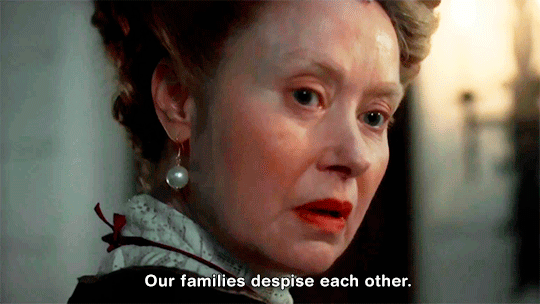




aristocracy in a nutshell
#perioddramaedit#the serpent queen#mine: perioddrama#tsq#tsqedit#antoine de bourbon#antoinette de guise#aristocracy#aristocrats#theserpentqueenedit#french history#historicaldrama#mine: gifs#mine.#rayedit.#historical memes
597 notes
·
View notes
Photo

Aristocratic Roman women, from a mural at Pompeii
#fresco#art#fine art#pompeii#greece#rome#crete#mediterranean#roman women#italy#spain#france#greek#roman#western civilization#Aristocracy#aristocrat#our ancestors
1K notes
·
View notes
Text
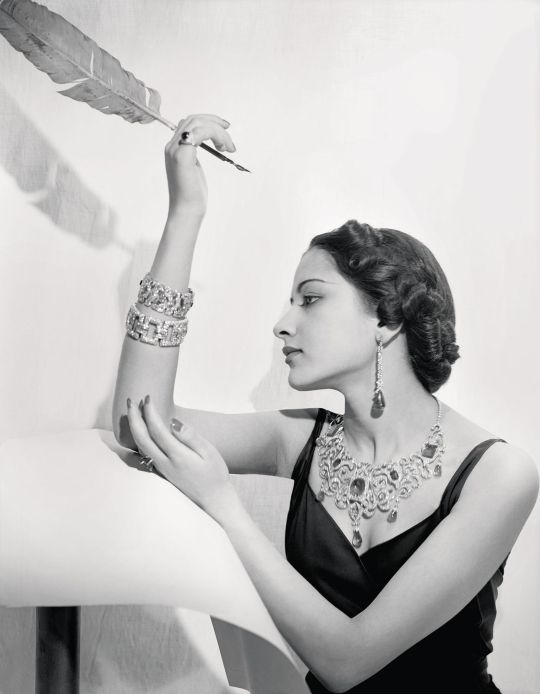
Rani Sita Devi, also known as Princess Karam
1940
Photographer: Cecil Beaton
#Princess Karam#fashion#portrait#photography#fashion history#fashion photography#black and white#1940s#cecil beaton#aristocracy
359 notes
·
View notes
Photo
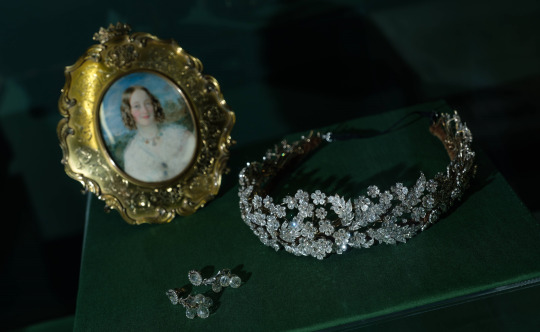
Buccleuch Mayflower Tiara ♕ Richard Scott, 10th Duke of Buccleuch and 12th Duke of Queensberry
172 notes
·
View notes
Text

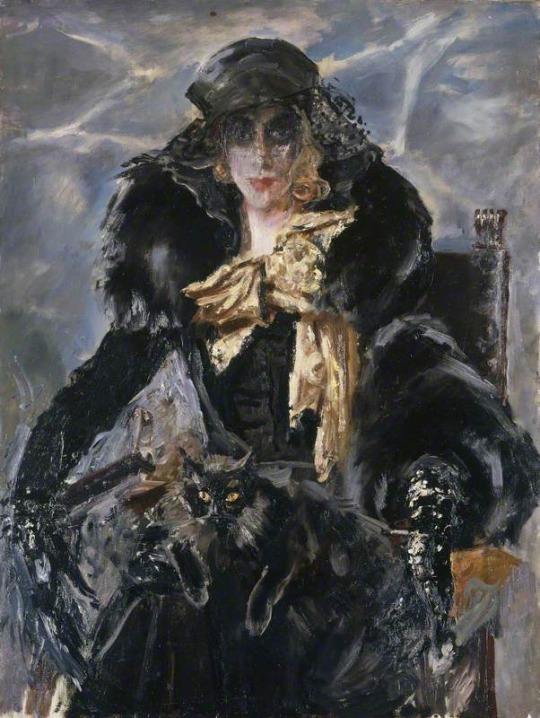
Marchesa Luisa Casati
Augustus John, The Marchesa Casati, 1919
Augustus Edwin John, Marchesa Casati, c. 1942
#luisa casati#augustus john#welsh painter#welsh artist#portrait#portrait painting#portrait art#portraiture#british art#british painter#british painting#british artist#marchesa#aristocracy#celebrity portraits#cafe society#modern art#art history#aesthetictumblr#tumblraesthetic#tumblrpic#tumblrpictures#tumblr art#aesthetic#tumblrstyle#beauty
44 notes
·
View notes
Text
Lucius Malfoy

Is this Lucius Malfoy? It is Lucius Malfoy!
(at least in my imagination)
I've found the original illustration on tumblr but immediately thought that this looks like Lucius Malfoy. The pose, cold eyes, and smart attire gives off such an aristocratic and regal vibe, especially with the pelt around his shoulder. Overall, very sexy.
#fanart#lucius malfoy#harry potter#harry potter fanart#lumione#death eaters#elegance#aristocracy#pureblood society#pureblood culture
26 notes
·
View notes
Text



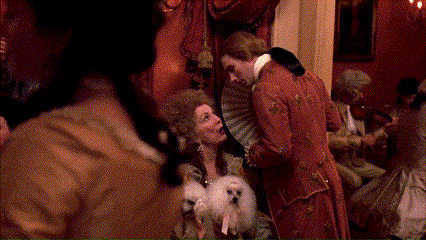
"The trick is not to think about it. See that one there? Widow St. Clair. She had the gorgeous young fop murder her husband....She blamed a slave for his murder. Imagine what they did to him. Evildoers are easier, and they taste better."
Interview With The Vampire (1994)
#interview with the vampire#the vampire lestat#halloween#1994#lestat de lioncourt#louis de pointe du lac#brad pitt#new orleans#the vampire chronicles#tom cruise#iwtv#lestat x louis#kirsten dunst#gifs#gifset#mygifs#vampire#vampires#vampirism#aristocracy
62 notes
·
View notes

